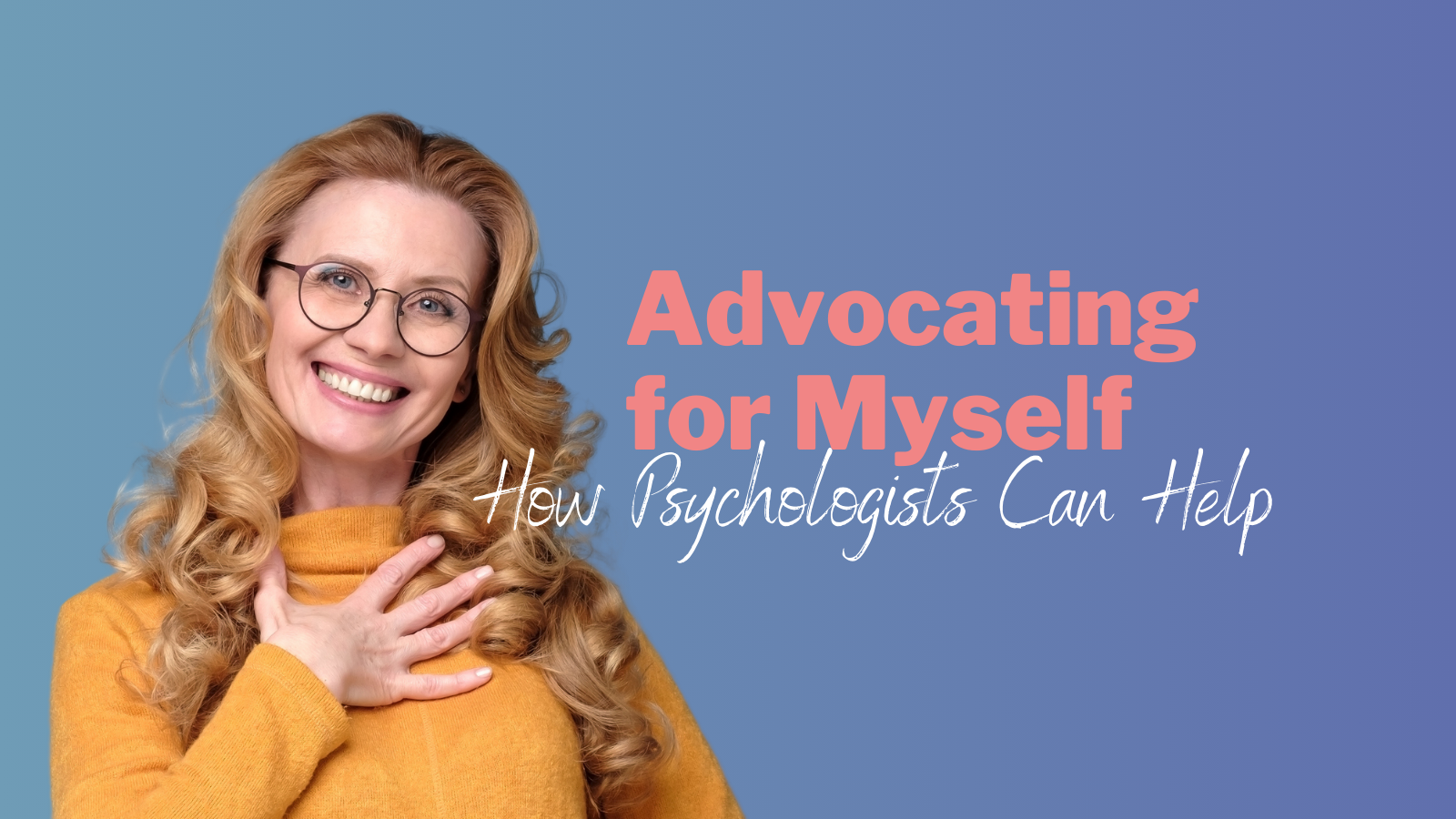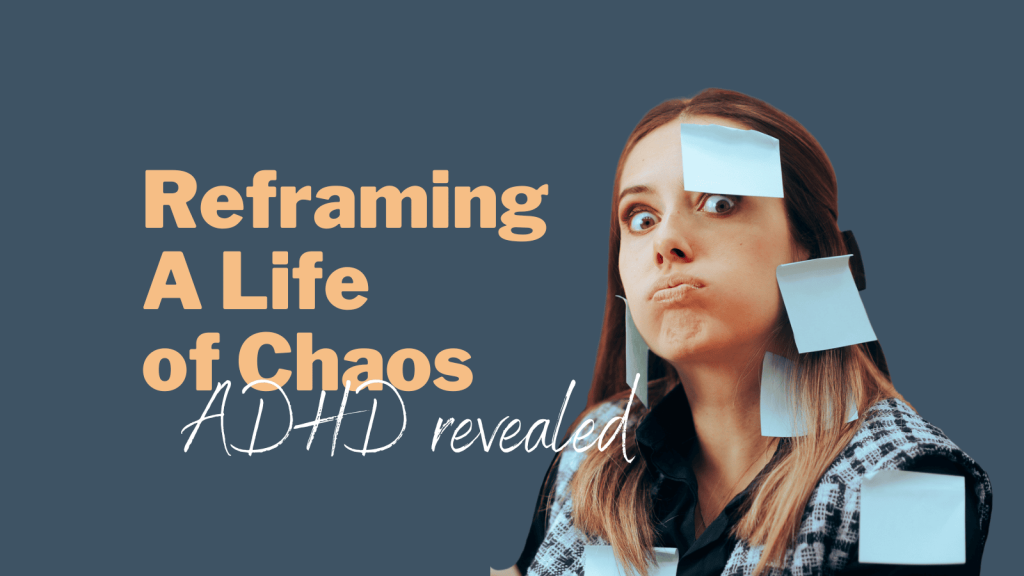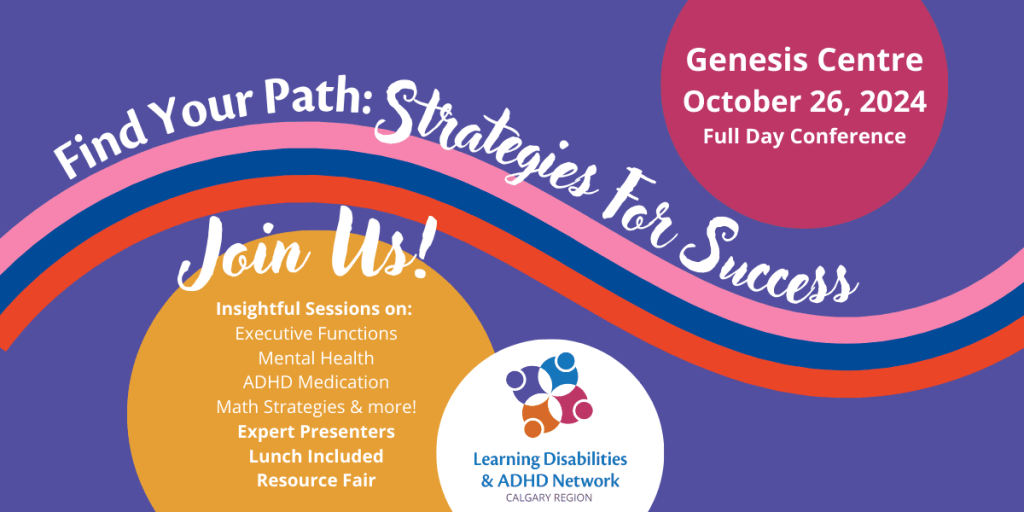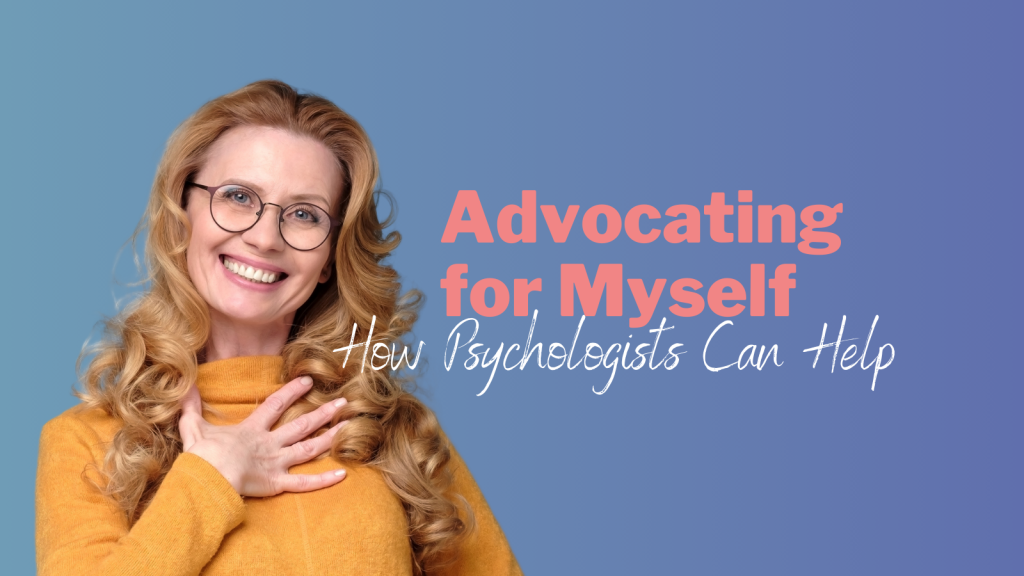Articles About LD & ADHD
My ADHD Journey Through Chaos, Diagnosis and Imposter Syndrome
I was 30 when I received my ADHD diagnosis: Combined Type, Severity: High. For most of my life, I’d been battling an unseen adversary – like an elusive cryptid – leaving me perpetually exhausted, scattered, and questioning my worth. Receiving the diagnosis was both a relief and an awakening. It validated my struggles while forcing me to confront not only the challenges but also the deeply rooted imposter syndrome that had quietly shaped much of my identity.
My diagnosis also brought into focus a more painful reality: how ADHD fueled impulsivity, poor decision-making, and unhealthy relationship patterns. Perhaps most difficult to acknowledge was how being the eldest daughter – the default “third parent” to my younger sister – trapped me in a caregiving cycle I was never equipped to manage, especially with a mind constantly whirling in overdrive.
The Toll of “Trying Harder”
Growing up in a lower-income household, mental health conversations were virtually nonexistent. We valued hard work, survival, and resilience. My parents, stretched thin by work and bills, were focused on keeping the heat on rather than on introspection. We didn’t have labels like ADHD; instead, there was “just try harder” or “just pay more attention.” As the eldest daughter, I became a second caregiver by necessity, readily stepping into a role long before I understood its weight.
From an early age, I took care of my sister: cooking meals, helping with homework, and often shielding her from household tensions. At the time, caregiving felt natural, but in retrospect, it set a precedent that followed me into adulthood. Managing these responsibilities with undiagnosed ADHD drained me. I was disorganized, forgetful, and constantly overwhelmed. Every misplaced item or forgotten task reinforced a belief that I was fundamentally unreliable—not just as a sibling or daughter, but as a person. Still, I pushed through blinking back tears of frustration and self-loathing because failure wasn’t an option. My family depended on me to keep things going.
This responsibility became central to my identity. I coped by overcompensating through people-pleasing, masking my struggles, and pretending I had it all together. On the inside I felt like I was held together precariously with strips of duct tape, cartoonishly slapping them onto leaks only for another to burst through the walls.
Same at School
In school, I was the quintessential underachiever. I lived in a constant state of overload, frequently losing homework, missing first periods but managing to panic-write A+ essays the night before they were due. My clothes were always wrinkled from their strategic floor piles, my hair constantly one day past its best-before date. My shifts at my after-school job always started five minutes late for reasons I still can’t account for. No one – not even me – saw anything past laziness.
College magnified my imposter syndrome. As the first in my family to pursue and complete post-secondary education (not to mention only half of us had finished high school), I felt the crushing weight of expectation. I juggled a full-time job, a viciously abusive relationship, demanding classes, and the gnawing fear that I was only moments away from being exposed as a fraud. Every assignment submitted late felt like the one that would expose my acceptance as a mistake.
I compensated with an arsenal of alarms, sticky notes in odd places, and sheer willpower. So much so that I have not one but two anxiety disorders that I box breathe through regularly (a little-known side-effect of untreated ADHD). Through clenched jaws and gritted teeth, I was convinced that everyone else was better than me. They were smarter, more capable. Things just seemed…easier for them. It was as if we all had the same recipe, but my copy was missing a vital ingredient.
Who Could Ever Love Me?
Impulsivity shaped my adult life, especially in relationships. My emotions felt intense and consuming. I often fell hard and fast, craving connection and validation. Without school to provide structure, I threw myself into work, desperate to prove my worth while seeming “normal.”
Looking back, it’s clear how ADHD left me vulnerable to toxic relationships. My rejection sensitivity led me to tolerate mistreatment out of fear of being seen as inherently flawed. Familiar dynamics of emotional chaos mirrored my upbringing and felt strangely comforting, even when they crossed into abuse.
Partners who belittled me or weaponized my disorganization confirmed my deepest insecurities: that I was broken, unlovable, or, as one cruelly put it, “a Kmart Blue Light Special.” I convinced myself that working harder could make me worthy of love. Leaving toxic situations felt like personal failure, reinforcing the belief that I couldn’t manage even the simplest human experience.
A New Direction
My turning point came when a close friend shared her ADHD diagnosis. Her experiences – endless to-do lists, forgotten appointments, impulsive decisions – felt hauntingly familiar. Still, seeking help felt selfish and dramatic. I was supposed to be the responsible one.
By 29, burnout consumed me after years in a high-pressure career. Convinced my searing shame stemmed from laziness or lack of discipline, I finally sought help. The therapist patiently listened as I recounted a lifetime of chaos, perfectionism, and caregiving. Her eyebrows barely raised when I confessed that, after an intense 24-hour research spree, I impulsively dropped $250 on everything needed to own a guinea pig – only to discover, upon holding one for the first time, that I do not like guinea pigs. When she confirmed the diagnosis (suspiciously not long after the guinea pig story), I cried with relief.
Revelation
The diagnosis reframed my entire life. I wasn’t lazy or defective – my brain simply worked differently. Yet, the relief was tempered by grief: for lost opportunities, for years spent drowning under impossible expectations, and for potential I never believed I had.
With support, I began untangling these narratives. I learned that being supportive doesn’t mean sacrificing my well-being. I no longer equate rest with failure, and I push back against imposter syndrome, recognizing it as a voice from my past – not my present – though it still whispers that my ADHD diagnosis is an excuse. Therapy helped me recognize that voice for what it is: a lifetime of feeling inadequate despite managing far more than most people could handle.
Better Today
Today, I’m still learning. Imposter syndrome persists but has quieted. I rely on supportive tools like reminders, medication, and unconventional laundry organization systems. While things still slip through the cracks, I’ve accepted that this doesn’t diminish my worth.
Being diagnosed with ADHD didn’t fix me – but it allowed me to rewrite my story with compassion. I’m no longer defined by perfectionism or shame. Instead, I see myself with the kindness I once reserved only for others. After all, being human isn’t about never falling – it’s about learning to get back up.
About the Author: C Motz is a Calgarian sharing her personal journey of ADHD in support of others like her.
Managing your money can feel overwhelming, especially if you add the challenge of ADHD or a learning disability (LD.) With the right strategies and tools, you can create a budget and build good money habits that work for your brain.
Let’s look at some practical tips and tools to help simplify budgeting and build financial confidence. Building financial confidence can spill over to build confidence in other areas of your life, too.
Why is Budgeting Challenging?
For LD and ADHD brains, managing money can be a challenge. It often involves extra hurdles. The challenges of LDs or ADHD can affect how you process information, plan, and make decisions. All of these are essential for budgeting.
Challenges
Executive function challenges like planning, organizing, prioritizing, and staying focused can leave you overwhelmed by details. This can make tasks like balancing a chequebook, reviewing bank transactions or tracking expenses seem even more overwhelming.
Impulsivity and Emotional Spending
People with LD and ADHD often find themselves making impulsive decisions or engaging in emotional spending. That must-have purchase can lose its shine very quickly leading to guilt and regret. Emotional spending might also be a coping mechanism for stress, boredom, or because you are frustrated with money-related tasks.
The Overwhelm Factor
Traditional budgeting methods can often rely on detailed calculations and precise tracking. You might find it difficult to keep track of purchases or understanding interest rates. For those who are overwhelmed easily, these complex tasks can quickly lead to avoidance. The result? Missed payments, overdrafts, or too much month at the end of the money.
There is Good News
Despite these challenges, there are ways to create a budgeting system that works for you and your brain.
- Keep tasks simple.
- Use visual tools.
- Build in supports.
If you follow these steps, you can take control of your finances one step at a time.
Foundations of ADHD & LD-Friendly Budgeting
Creating a budget that works for different brains starts with keeping things simple and focusing on small, realistic actions. These simple tips can help to reduce the overwhelm and look at your needs.
Start Small
Begin with small steps to build your confidence:
- Start with one task. Track a single category, like groceries, instead of your entire budget.
- Plan to do a quick, weekly check-in on that one area instead of trying a full monthly review.
- Try using round numbers. Keep it simple. You can round up or down depending on the amount.
- Track you spending on a piece of paper. Tape it to your fridge to keep it visible.
What Tools Do You Need?
Choose tools to keep budgeting easy for you:
- If you are ready to try an app, look at apps like YNAB, Goodbudget and Mint. They can help with the math and give clear visuals.
- You can use spreadsheet templates with pre-set formulas that do the math for you.
- If you prefer a paper-based system, use large-font and color-coded templates to make them easier to work with.
Make It Visual
Both LD & ADHD brains might find that visual systems help keep information simple:
- Use color-coding for different expenses. For example, green for essentials, and red for extras.
- If you are comfortable with Excel, you can turn numbers into visuals using pie charts or bar graphs that show your spending instantly.
- You can try keeping your budget visible by keeping it on a bulletin board or on the fridge. You can also try using sticky notes as reminders.
Start small, use simple tools, and lean into visuals. You can create a budgeting system that feels possible and easy for you to do.
Managing Your Money
Managing money is not about perfection. It is about creating systems that work with your unique way of thinking. Here are some strategies that are simple and flexible. They are designed to make budgeting less overwhelming and more doable.
The “Rule of Three” Method
Instead of tracking every single expense, focus on three main areas:
- The Essentials: These are things like rent/mortgage, utilities, groceries, and other must-haves.
- Your Savings: This is about building your emergency funds or saving for a vacation or a big purchase or special gifts.
- Fun Money: Use this for things you enjoy, like a coffee or something you might want.
This method helps you concentrate on the important things without feeling bogged down by details.
Automate When Ever You Can
This will reduce the chance of forgetting:
- Set up automatic bill payments. Start with the bills that are the same amount each month. Think of how great it will be to never miss a due date.
- Set up a direct transfer into your savings account as soon as you are paid.
- You can use apps that track your spending and send alerts when you are near your limit.
Create a Spending Plan for “Fun Money”
Impulse spending happens, and that is okay! Give yourself permission to spend on fun things but set a limit ahead of time.
- Withdraw cash for fun money each week. Once it’s gone, it’s gone. Did you know that the experience of physically handling cash makes us more mindful? It can help you develop a stronger sense of what you are spending compared to debit or credit card.
- Try using a prepaid debit card for fun expenses. This can keep you in your budget without relying on willpower.
Set Financial Reminders
Time blindness can make it tricky to stay on top of deadlines. Use reminders!
- Use a reminders app on your phone or a calendar app to set recurring reminders for bill payments, budget check-ins, or adding to your savings.
- Choose a specific day each week for a quick “money moment” to review your accounts and spending.
A Quick Look at Emotional Spending
Emotional spending can sneak up on anyone. For LD & ADHD brains, it is often tied to moments of stress, boredom, or struggles with number-related tasks. Understanding your patterns can help you stay on track.
What are Your Emotional Spending Triggers?
Be aware and notice when and why you are spending. Are you:
- Feeling stressed or overwhelmed about managing your budget?
- Looking for a reward after a tough day?
- Avoiding an unpleasant task or emotion?
When you can name your triggers, you can learn to pause and decide whether that purchase supports your goals.
Simplify the Numbers
If tracking your spending feels like too much, try these ideas:
- Use budgeting tools with visual aids or automated features to avoid the calculations.
- Focus on one number and area at a time, like weekly spending. Don’t try to manage several areas.
- Stick to round numbers, like $100 for groceries, to make the mental math easier.
Pause Before You Purchase
When the urge to spend strikes, try these simple pause techniques:
- Wait 24 hours before making non-essential purchases.
- Ask yourself, “Do I really need this right now?”
- If you find it challenging to remember, set up a digital reminder to revisit the purchase later.
Replace Emotional Spending with Other Options
Find other ways to meet the emotions behind your spending:
- Stressed? Take a short walk, practice deep breathing, or listen to calming music.
- Bored? Dive into a hobby or engage in hands-on activities like cooking or crafting.
- Feeling down? Treat yourself in a non-financial way, like journaling, watching a favourite show, or connecting with someone you trust.
Building Accountability
Having someone to share your financial goals with can make a big difference. You can:
- Work with a coach, financial counselor, or someone experienced in working with LD & ADHD brains.
- Share your goals with a trusted friend or family member who can check in with you.
- Use a budgeting tool that works with your brain.
By combining strategies for emotional regulation and practical tools that make budgeting easier, you can create spending habits that are encouraging and doable. These strategies won’t solve everything overnight, but they can make budgeting feel less overwhelming and more achievable. Start with just one idea and build from there—you’ll be surprised how much progress you can make!
Resources
NerdWallet : Comparisons and reviews of budgeting apps.
Mad About Money App – For Android and iOS. An app built to help neurodiverse brains talk about money.
Attitude Magazine – this website focuses on ADHD brains, and it has many resources on finances.
Understanding the financial challenges faced by neurodivergent people – article by FT Advisor
About the Author: Laura Godfrey has worked with families and individuals as an ADHD coach for over 8 years and is an ICF and PAAC-credentialed ADHD Life Coach, an AudHD Coach (Autism), and an ADHD Parent Coach. She holds a Self-Reg® Foundations Certificate through the Mehrit Centre. Her ADHD Coach training is through the ADD Coach Academy, and she also facilitates ADHD support groups at CanLearn.
October is Learning Disabilities and ADHD Awareness Month! Boost your understanding and personal support toolkit at our one-day conference on October 26, 2024.
Find Your Path: Strategies for Success is all about practical take-aways for those with Learning Disabilities or ADHD on executive functioning, mental health, ADHD medication, math strategies, advocacy, relationships and more!
If you are a parent, educate children or are an adult looking to strengthen your skill set, this conference is for you.
Choose which ticket platform you would like to buy tickets on:
Conference Details
- Saturday, October 26, 2024, 8 am – 5 pm
- Tickets available for purchase until Oct. 21 – TICKET SALES EXTENDED To OCT. 24!
- Sessions are 75 minutes with 15 minute breaks
- Resource Fair from 8 am – 5 pm
- Nutritious Lunch Included (individually boxed and labeled; V, Veg, GF, Halal available)
- Venue: The Genesis Centre, 7555 Falconridge Blvd NE, Calgary
- Free Parking
- In-person event; sessions are not recorded so see you there!
- Conference Schedule and Conference Topics & Presenters
Tickets are only CDN$30 and include Showpass or EventBrite fees. They are available for purchase until Oct. 21. TICKET SALES EXTENDED To OCT. 24!
Note: This conference has been heavily subsidized to be as financially accessible as possible. However, if you would have been able to pay more, please consider adding a donation when purchasing your ticket. Thank you!
Ticket prices, except for Showpass fees or EventBrite fees, are refundable only up to and including October 15, 2024. No refunds will be issued after this date. Contact findhelp@ldadhdnetwork.ca for refunds.
Best Way to Register
- Explore the session topics below.
- Choose one from each time slot.
- Click on Register Today on Showpass or Register Today on EventBrite which will take you to buy your ticket and where you will be prompted to register for the sessions before check out.
Conference Topics
9:00 am – 10:15 am, presentations 1A or 1B.
1A: Strategies to Work With Your Brain
Angie Jones, Tracie Czerkawski & Dani Taylor
This session is designed specifically for adults to provide strategies and tools to enhance executive functioning skills. Understanding and improving these skills can lead to better management of daily tasks, increased productivity, and improved quality of life. The session will focus on practical techniques tailored to address common challenges faced by adults experiencing challenges with executive functioning.
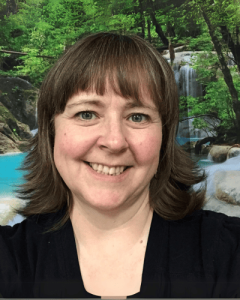 Angie Jones holds a Master of Education in Community Rehabilitation and Disability Studies and has been working with people with disabilities, across the lifespan, for over 25 years. She has been involved in post-secondary education for approximately 7 years as an instructor and Accessibility Advisor and is currently the Student Support Coordinator in the Lamb Learner Success Centre at SAIT and oversees Accessibility Services and Testing Services. Angie’s personal experience with neurodiversity has driven her passion to support students at SAIT and she is currently a co-chair for the SAIT Neurodiversity Alliance.
Angie Jones holds a Master of Education in Community Rehabilitation and Disability Studies and has been working with people with disabilities, across the lifespan, for over 25 years. She has been involved in post-secondary education for approximately 7 years as an instructor and Accessibility Advisor and is currently the Student Support Coordinator in the Lamb Learner Success Centre at SAIT and oversees Accessibility Services and Testing Services. Angie’s personal experience with neurodiversity has driven her passion to support students at SAIT and she is currently a co-chair for the SAIT Neurodiversity Alliance.
 Tracie Czerkawski is an Academic Strategist at Mount Royal University. She has a BA in Women and Gender Studies, focusing on critical disability studies, from the University of Manitoba, and has completed coursework towards an MA in Educational Research from the University of Calgary. Tracie is diagnosed with ADHD and brings her lived experience to her work supporting students.
Tracie Czerkawski is an Academic Strategist at Mount Royal University. She has a BA in Women and Gender Studies, focusing on critical disability studies, from the University of Manitoba, and has completed coursework towards an MA in Educational Research from the University of Calgary. Tracie is diagnosed with ADHD and brings her lived experience to her work supporting students.
Dani Taylor holds a degree in Psychology and a degree in Education. She was a teacher with the Calgary Board of Education for 7 years before pursuing her dream of working with students with disabilities. She has been an accessibility advisor at SAIT for the past year and co-chairs the Neurodiversity Alliance. Dani is moving into a new role this fall as SAIT’s first Neurodiversity Specialist.
1B: What are EF Skills and How Can We Support Them in children?
Lauren Thompson
Executive functioning skills are life skills that help people manage time, organize themselves and their belongings and navigate social interactions. Often, these skills are impacted in students with learning disabilities and ADHD. These students can be labeled as “bad” because of their inability to self-regulate and plan and organize. This session will present information on what EF skills are and how they look in real life, as well as practical skills and strategies to help teachers and parents support the children in their lives to have success in school and at home.
 Lauren Thompson is a Calgary-born educator at Rundle Academy, a school specializing in students with learning disabilities from Grade 4-12. She has been an educator for 12 years, and recently obtained her Masters in Educational Neuroscience and Learning Disabilities from the University of Calgary. She currently teaches Grade 6, and is the Head of Literacy at her school. She is passionate about supporting the needs of diverse students and dedicated to empowering them in helping them reach their full potential.
Lauren Thompson is a Calgary-born educator at Rundle Academy, a school specializing in students with learning disabilities from Grade 4-12. She has been an educator for 12 years, and recently obtained her Masters in Educational Neuroscience and Learning Disabilities from the University of Calgary. She currently teaches Grade 6, and is the Head of Literacy at her school. She is passionate about supporting the needs of diverse students and dedicated to empowering them in helping them reach their full potential.
10:30 am – 11:45 am, presentations 2A or 2B.
2A: Navigating Relationships as an Adult with ADHD/Learning Disorders
Dr. Heather Baker, R.Psych., Director of Clinical Services at CanLearn Society
Each day we are faced with navigating the nuances of different relationships. Our experiences as children can impact the way that we interact with others in our lives as adults. Adults with ADHD and/or Learning Disorders may experience unique strengths and challenges when it comes to building and maintaining relationships. This presentation explores these unique aspects of relationship navigation with a specific focus on self-advocacy, emotion regulation, and diagnosis disclosure. Presented strategies aim to help adults with ADHD and/or Learning Disorders feel more confident in their role as a partner, friend, and co-worker.
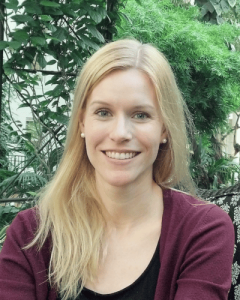 Dr. Heather Baker is a Registered Psychologist and Adjunct Clinical Associate Professor through Werklund School of Education at the University of Calgary. She holds a doctorate in School Psychology and a master’s in Clinical Psychology (both through the University of British Columbia). Dr. Baker specializes in assessment and program planning for individuals with anxiety, learning, attention, and behavioural challenges across the lifespan. She enjoys providing supervision to practicum and internship students and participating in research partnerships in the community.
Dr. Heather Baker is a Registered Psychologist and Adjunct Clinical Associate Professor through Werklund School of Education at the University of Calgary. She holds a doctorate in School Psychology and a master’s in Clinical Psychology (both through the University of British Columbia). Dr. Baker specializes in assessment and program planning for individuals with anxiety, learning, attention, and behavioural challenges across the lifespan. She enjoys providing supervision to practicum and internship students and participating in research partnerships in the community.
2B: Parent Advocacy as Part of the School Learning Team
Terra Xavier, BA, BEd, MEd
Navigating the IPP process in being an active member of the school learning team can be a daunting undertaking for parents. This session will prepare parents for collaborating with the school to ensure that their child’s needs according to their ADHD and/or Learning Disability diagnosis are being fully addressed and supported. This will include IPP essentials, resources, and look-fors that would assist in promoting productive and reciprocal relationship between home and school with the child at the centre for both.
 Terra Xavier has been teaching with the Calgary Board of Education for nearly two decades (K-9) and has taught in various educational environments including community schools, specialized classes, and unique settings. She has taken on various leadership roles to support student reading development as classroom teacher, learning leader, and system Inclusive Education Specialist. Terra has a wealth of experience, knowledge, and passion around research-based literacy instruction and finds joy in supporting teachers and school leaders with transforming their practice.
Terra Xavier has been teaching with the Calgary Board of Education for nearly two decades (K-9) and has taught in various educational environments including community schools, specialized classes, and unique settings. She has taken on various leadership roles to support student reading development as classroom teacher, learning leader, and system Inclusive Education Specialist. Terra has a wealth of experience, knowledge, and passion around research-based literacy instruction and finds joy in supporting teachers and school leaders with transforming their practice.
12:30 pm- 1:45 pm, presentations 3A or 3B.
3A: Designing to the Edges of Your Math Classroom
Sheryl Walters & Liz Thompson
Instructional design is a powerful tool for crafting lessons that are both accessible and captivating in mathematics classrooms. By applying intentional, universal design principles, educators can integrate high-impact strategies and activities that offer a broad range of entry points and opportunities for advanced exploration. In this session, we’ll explore the significance of purposeful instructional design in mathematics and the impact that accessible tasks can have on student engagement and comprehension. Participants will gain valuable insights into designing for diverse learning needs and will leave equipped with practical resources and strategies to immediately enhance their lessons.
 Sheryl Walters is an Assistant Principal at Calgary Academy and a Doctoral Student at the University of Calgary. With 13 years of experience in education, she has excelled as an instructional designer and administrator within special education. Sheryl’s expertise lies in mathematics instruction and inclusive design, and she is dedicated to coaching educators and engaging learners through innovative numeracy strategies and effective discourse.
Sheryl Walters is an Assistant Principal at Calgary Academy and a Doctoral Student at the University of Calgary. With 13 years of experience in education, she has excelled as an instructional designer and administrator within special education. Sheryl’s expertise lies in mathematics instruction and inclusive design, and she is dedicated to coaching educators and engaging learners through innovative numeracy strategies and effective discourse.
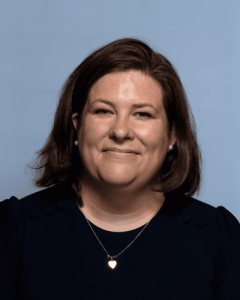 Liz Thompson is an Assistant Principal and former Foundational Numeracy Lead at Calgary Academy, where she has spent the past twelve years working with exceptional learners. Her expertise is in building teacher capacity to integrate foundational numeracy skills and address the diverse needs of math learners. Liz is also pursuing a Master of Education in Sustainability, Creativity, and Innovation from Cape Breton University, further enriching her approach to educational practice and innovation.
Liz Thompson is an Assistant Principal and former Foundational Numeracy Lead at Calgary Academy, where she has spent the past twelve years working with exceptional learners. Her expertise is in building teacher capacity to integrate foundational numeracy skills and address the diverse needs of math learners. Liz is also pursuing a Master of Education in Sustainability, Creativity, and Innovation from Cape Breton University, further enriching her approach to educational practice and innovation.
3B: Beyond the Diagnosis: Understanding the Benefits and Challenges of ADHD Medications
Dr. Sterling Sparshu
In this session, Dr. Sparshu will discuss ADHD medications including the options available and how they fit into a broader treatment plan. How to choose and trial medications will also be discussed, along with some strategies for handling side effects and keeping your progress going, plus tips on how to advocate to get the best care possible.
 Dr. Sterling Sparshu is a psychiatrist practicing in Calgary, Alberta. He has worked with children, adolescents and young adults in multiple settings including mental health clinics, residential care, and hospital-based programs. He is a Clinical Assistant Professor with the Cumming School of Medicine and enjoys teaching at all levels of medical education. He is passionate about collaboration, education and early intervention, including empowering those impacted by mental health conditions to become partners in their care.
Dr. Sterling Sparshu is a psychiatrist practicing in Calgary, Alberta. He has worked with children, adolescents and young adults in multiple settings including mental health clinics, residential care, and hospital-based programs. He is a Clinical Assistant Professor with the Cumming School of Medicine and enjoys teaching at all levels of medical education. He is passionate about collaboration, education and early intervention, including empowering those impacted by mental health conditions to become partners in their care.
2:00 pm- 3:15 pm, presentations 4A or 4B.
4A: Strategies for Supporting Mental Health in Neurodiverse Students
Dr. Gabrielle Wilcox
In this talk I define mental health including what we know about how students are doing broadly and how students with learning disabilities and ADHD are doing in the area of mental health. I will spend a great deal of time focusing on what we can do to support mental health especially positively and preventatively. Finally, I will cover extra supports for students with learning disabilities and ADHD might need to support their mental health.
 In January 2013, Dr. Wilcox moved to Alberta from Pennsylvania, where she spent most of her life. She is married with two teenaged sons. She earned a BSE in English Education and an MS in School Psychology at Millersville University. She practiced as a school psychologist for eight years, primarily serving students with intellectual disabilities or severe emotional/ behavioral problems, before completing her PsyD in School Psychology at Philadelphia College of Osteopathic Medicine (PCOM) in 2009. She completed post-doctoral training in clinical neuropsychology and practiced as a licensed psychologist in Pennsylvania, primarily working in pediatric neuropsychology, until joining the Werklund School of Education at the University of Calgary. Dr. Wilcox is a Registered Psychologist in Alberta and a Nationally Certified School Psychologist.
In January 2013, Dr. Wilcox moved to Alberta from Pennsylvania, where she spent most of her life. She is married with two teenaged sons. She earned a BSE in English Education and an MS in School Psychology at Millersville University. She practiced as a school psychologist for eight years, primarily serving students with intellectual disabilities or severe emotional/ behavioral problems, before completing her PsyD in School Psychology at Philadelphia College of Osteopathic Medicine (PCOM) in 2009. She completed post-doctoral training in clinical neuropsychology and practiced as a licensed psychologist in Pennsylvania, primarily working in pediatric neuropsychology, until joining the Werklund School of Education at the University of Calgary. Dr. Wilcox is a Registered Psychologist in Alberta and a Nationally Certified School Psychologist.
4B: ADHD in Girls & Women: Strategies for Success
Navdeep Vining & Uma Pepin-Robbins
This presentation highlights how ADHD often shows up differently in girls and women, leading to delayed diagnoses. We will explore how girls and women tend to mask their symptoms to fit in, which can make their struggles less noticeable. We will address how ADHD in girls is linked to unique mental health challenges such as higher rates of self-harm, eating disorders, and risky behaviours. Hormonal changes, including the menstrual cycle, can also impact symptoms and medication effectiveness. We will also discuss ways to better support girls and women with ADHD, from early identification to addressing their specific needs.

Navdeep Vining is a Registered Provisional Psychologist who completed her Bachelor’s in Psychology from the University of Calgary and Masters of Counselling Psychology from Yorkville University. She has been a part of the Counselling Psychology team at Foothills Academy under the supervision of Dr. Karen MacMillan. Navdeep has worked with children and their families from ages 3-18 for the past 7 years with various disabilities inearly intervention, respite, residential programs and summer programs. She has extensive experience with a diverse age range and diverse mental health concerns and challenges. Navdeep was born and raised in Calgary, especially in northeast Calgary, and feels passionate about giving back to her own community. She looks forward to being involved in creating accessible mental health and disabilities education and services within the growing South East Asian community in Calgary in the future.

Uma Pepin-Robbins, is a Registered Provisional Psychologist and works with youth with Learning Disabilities and ADHD at Foothills Academy and has a passion for helping youth navigate the complexities of their emotional and mental well-being. Uma also co-facilitated a process group for young girls and adolescents with ADHD to help understanding of their diagnosis(es), while also helping them to gain greater awareness of their individual strengths.
“Having LD should never define who they are.”
School can be very challenging for a child with a Learning Disability so, come summer, look for opportunities that allow your child to explore and shine in other areas.
New Activities
Take advantage of those warm, sunny days to spend time outdoors. Does your child love to play basketball or ride a bike? Now is the time to develop those skills, either through formal programs or simply as a family or with friends. This is a perfect time to introduce new activities that haven’t been tried yet… such as learning to swim, kayaking or golf. It’s so important that kids with LD have the opportunity to discover the strengths that they have.
This is also a perfect time to take advantage of the pathways and trails that exist in many neighbourhoods as well as exploring interesting nearby communities. Lots of information can be found online that provide families with suggested walking or biking routes and other excursions. With high gas prices this summer, finding a favourite new nearby park or ice cream shop is a cost conscious way to enjoy a day outdoors. Letting your child plan the trip or create a map for the outing builds important skills as well as confidence.
Also, watch for local festivals and special events at galleries, libraries, community centres, etc. to further expand your children’s opportunities to develop new interests and skills. Not everything activity has to cost money.
Getting out and about is also a good way to combat some of the emotional stress that your child may have been experiencing this past school year. School can be very stressful, especially for our children with special needs, and time spent reconnecting to nature is so important.
Reconnect
So is reconnecting with family and friends. Friendships can often be particularly challenging for children with LD, and COVID created further barriers to those social interactions. Though we are thankfully past the pandemic, it caused delays in social skills development that continue to be an issue for many children. Look for opportunities to connect with understanding family and friends that can consciously foster conversational skills, turn-taking in games, or sharing their own interests and can engage a socially immature child or youth with patience and humour. Also consider speciality summer camps for students with LD where camp counsellors are trained in understanding LD and incorporate social skills learning through fun summer activities.
More Ideas
Do you have a future scientist or astronomer in your family? The back yard is a great spot for some of those messy science experiments that kids love so much. The library or online sites can provide lots of ideas for experiments. And, star gazing at night may inspire a curiosity about the wider universe.
Outdoors is also the perfect venue for a variety of craft projects. Dollar stores and local craft stores have lots of reasonably priced materials for a budding sculptor, wood or paper project builder or Picasso. Water based paints are a safer choice than acrylics or oils, making for easy clean up after a project is done. Kids can simply experiment with the materials or follow along on youtube demos. And, crafting “plein air” means that the paints and other materials dry quickly.
What about starting a garden? Even those in condos can grow pots of plants or vegetables. There are a variety of seeds available at many local stores or you can stop by a garden centre that is now clearing out this year’s stock. We always look for brightly coloured flowers or plants such as strawberries or tomatoes that offer a quick, and often repeated, harvest.
Growing vegetables or fruits can also lead to learning to cook or bake, both important…and fun!… life skills. Following recipe instructions reinforces reading and math measurement skills without it seeming to be work. Best of all, there is the reward of something delicious to enjoy at the end.
Reading, too
And, in our family, reading skills are not ignored over the summer. Even though reading may be a real challenge for your child with LD, it is a skill that needs to be maintained…even while on vacation. During this time away from school where there was often a more structured reading program or book selection, focus on what your child would like to read. Re-reading an old familiar book that they enjoyed or sharing potential new favourites as a family read-aloud activity can bring new enjoyment to the reading process.
Summer definitely is not a time to simply survive before school resumes. Instead, you can make it a time to try a whole host of interesting activities while creating new family memories and, in the process, a lot of added confidence in your child with LD.
About the Author:
Lorrie Goegan, B.A., B. Ed, Cert Sp. Ed., is a longtime parent mentor and a past speaker at numerous provincial and national LD conferences. She is also the parent of an adult daughter with LD.
Self-Advocacy When You are a Newcomer
Canada has a long history of immigration. Millions of people worldwide have chosen, and continue to choose, Canada as their new home. In 2021, more than 8.3 million people, or almost one-quarter (23.0%) of the population, were, or had ever been, a landed immigrant or permanent resident in Canada, according to Statistics Canada.
Moving to a new country is a challenging step in one’s life, regardless of your background or reasons for the move. Leaving behind everything familiar and adjusting to a new place, people, and society can be daunting. However, you are not alone in this journey. Your resilience and determination will guide you through these challenges.
In the Beginning
In the early stages of settlement, we focus on fulfilling our primary needs and navigating a new system to find a job or education, depending on the case. Families with children must also learn about the local education system, how to enrol their children and the range and limits of teacher responsibilities.
If your child has been diagnosed with a learning disability before coming to Canada, rest assured that support is available for you and your family. However, you must be proactive in sharing the diagnosis and participating in the support process, as resources are not always centralized. Nonetheless, numerous resources are available to support you and your child, and we are here to guide you in accessing them.
Landed immigrants with higher levels of education and language skills generally do not face significant challenges in supporting themselves and their family members in their journey of self-advocating for learning disabilities. However, numerous barriers impact other newcomer families when navigating the system to find services and resources related to learning disabilities.
What is a Learning Disability?
“Learning Disabilities refer to a number of disorders that may affect the acquisition, organization, retention, understanding, or use of verbal or nonverbal information. These disorders affect learning in individuals who otherwise demonstrate at least average abilities essential for thinking and reasoning. Learning disabilities are distinct from global intellectual deficiency” (Learning Disabilities Association of Canada). This means that a child is able to learn quite well – they are not ‘disabled’ from learning – though their brains process information differently enough that they often encounter difficulties in school settings.
Alberta Family Resource Networks
A good starting point for newcomer parents of young children living in Alberta is to connect with the Family Resource Networks (FRN), which deliver prevention and early intervention services and support for children and youth aged 0 to 18 and their families. Services are offered in-person and virtually to communities across Alberta. In addition to onsite programs, home visitation programs support literacy and the healthy development of young children, and they can come to you at your place. These programs usually have screening tools such as ASQ: The Ages & Stages Questionnaire, a developmental screening tool that pinpoints developmental progress in children between one month and 5 ½ years. Depending on the provider, first language support is also available through program staff or qualified interpreters.
Community Health Centers
If family programs are not an option for you, connecting to the Community Health Centre in your area is essential. As a parent, you know best about your child, so don’t hesitate to share any concerns and ask as many questions as you need. Interpretation is readily available through Alberta Health Services.
Once health staff have assessed the need for a screening, you will be referred to the appropriate health care provider. Be aware of the wait times, which can take several months. Please be patient but remember that you might need to seek help from various sources in this process. You are the advocate for your child, and even though you will find many people to support your journey, you are the one in charge. Your advocacy is crucial in ensuring your child’s needs are met, and we believe in your courage and ability. You lead, we follow.
Settlement Agencies
As a newcomer, you can access support through settlement agencies, where counselors can assist in completing documents and forms, and can also refer you to community programs, including family counseling.
We Can’t Wait for an Assessment!
There are instances when family doctors prefer to wait to refer for further assessments. Early intervention is crucial, and you don’t have to wait until your child starts school. You can ask for a second opinion from another doctor, seek advice from a community resource agency or see a private psychologist. Psychology fees can be claimed through workplace benefits plans and your income tax.
Depending on the final diagnosis, you might need to see different kinds of specialists, such as behavioral therapists, speech therapists, learning strategists, psychologists, and so on. You can also access support from a social worker depending on your family’s needs.
My Child Doesn’t Need a Label
It’s important to note that awareness and perception of learning disabilities vary between societies and are sometimes not widely acknowledged. Due to cultural pressure, some people may choose isolation and denial, and consciously avoid seeking services or diagnosis because they fear their children will be labeled. It’s crucial to remember that if your child has a learning disability, it simply means that their learning process is different, and they need support for learning. In fact, without a diagnosis, they will not be eligible to receive supports at school. Your child with a learning disability is capable and can be as successful as they want to be but they will need your support and advocacy.
If your child is a preschooler and has been diagnosed, their learning needs can be addressed through special programming at a preschool center. School-aged children can access intervention, accommodations and special programming through the school boards. It’s important to work closely with the educational institution to support your child’s educational journey. Your involvement is key to their success. Your advocacy is crucial to achieving their life goals.
About the Author
Luz Buritica is the Coordinator of Home Instruction for Parents of Preschool Youngsters (HIPPY) at the Calgary Immigrant Women’s Association (CIWA). Originally an engineer in Colombia, she joined the HIPPY program as a Mom a year after arriving in Canada. The program had a positive impact on her life, helping her daughter develop cognitive skills through simple and enjoyable activities. After two years as a HIPPY mother, Luz became a Home Visitor, supporting and empowering other families. Her experience led her to become a team leader and take on the coordinator position in 2015.
CIWA supports immigrant and refugee women, girls and their families. They offer more than 50 programs that can support individuals with settlement needs, language and employment training, family matters, seniors’ services, career and entrepreneurship, and mental health.
Self-advocacy is a term that is used quite often within the context of learning disabilities and ADHD. Generally speaking, self-advocacy refers to the ability to know what you may need in a particular situation and the ability to ask for what you need in that moment. With both learning disabilities and ADHD, knowing what you need may not always be obvious and knowing how to ask may be easier said than done. As an educational psychologist, part of my job is to help clients become more skilled and confident with knowing when and how to ask for what they need. An important aspect of self-advocacy is developing insight into your own strengths and challenges, which can be learned through the psychoeducational assessment process.
How Assessments Help with Self-Advocacy
Psychoeducational assessments can serve a variety of purposes. They can provide a profile of the individual’s learning strengths and challenges, identify any learning disabilities or other barriers to learning, and clarify what strategies or programming the individual may benefit from. As an educational psychologist, I have observed how the knowledge that is gained from a psychoeducational assessment can empower my clients to advocate for themselves at school, work, in the community and in their personal relationships.
An assessment provides a diagnosis or explanation as to why an individual struggles with learning or managing aspects of their life, which can empower the individual to ask for what they need to be successful. However, it is important to note that self-advocacy not only requires knowing your diagnosis, but it is also important to have a firm understanding of how your diagnosis impacts you in daily life. For example, ADHD can cause stress for some people in social settings if they struggle with impulsivity (e.g., interrupting during conversations). When I deliver assessment results to my clients, I also provide information about the diagnosis, how we currently understand it through research, and generally what types of strategies and supports have helped others with the same diagnosis.
When you receive any diagnosis from any medical practitioner, you should be allowed to ask questions about the diagnosis, how it impacts you now, how it may impact you in the future, and what resources and supports are available to you. Sometimes, there is not enough time at one appointment to discuss assessment results and next steps for supporting you or your child, so ask the practitioner if you can meet with them again in the near future with any additional questions you may have.
Disclosing the Diagnosis and Asking for Supports
Another important topic that I discuss with my clients after providing them with assessment results is issues related to disclosing the diagnosis to others. Learning how and when to disclose your diagnosis is an important part of self-advocacy. It allows you to take control of your personal information and how it will be used to access supports and accommodations at school and work.
Because each client has their own unique background, I discuss the pros and cons of disclosing their diagnosis in various settings specific to them, such as school versus work versus with family members. When you complete an assessment with your practitioner be sure to have a discussion with them about disclosing your diagnosis to others and how that may impact you. For example, ask your practitioner how disclosing your diagnosis at work may be beneficial for receiving certain accommodations (e.g., speech-to-text programs). Being thoughtful about how and when you disclose your diagnosis is critical for self-advocacy.
Having Realistic Expectations for Self-Advocacy
When I work with families, I often discuss the importance of parents helping their children to develop self-advocacy skills as they mature. However, I also point out that self-advocacy is not easy for most of us, and it can be even more difficult for youth who have difficulties with executive functioning. Learning disabilities and ADHD often involve challenges with self-monitoring, planning and thinking about future outcomes. It is important that parents also understand that their child may not always know when they need to advocate for themselves or how to do so.
Having a balanced approach with youth who are still developing their executive functioning skills is important. Parents and teachers can help youth to gain confidence to ask for what they need, but also provide support and guidance at times when youth struggle to know what they need and how to ask for it. For example, a parent or teacher may notice that a student is struggling to stay focused on their schoolwork. They could ask the student, “I’ve noticed that you might be having some difficulty staying focused right now, what do you think would be helpful for you?” and in this way, help to remind them of existing strategies they can choose from. This balanced approach becomes particularly important in high school as academic demands increase along with expectations for increased independence.
Self-Advocacy is a Life-Long Process
For children and adults with learning disabilities and/or ADHD, self-advocacy is a life-long process. Receiving a diagnosis is only the beginning of the journey. Self-advocacy is how you use the diagnosis throughout your life to access supports, accommodations and resources so that you can experience success and a good quality of life. For parents, this may mean frequent communication with their child’s teachers to ensure that classroom strategies and supports are put in place. For adults, this may mean asking for access to a particular technology that will allow you to complete your work duties more accurately and efficiently. As you grow and learn more about how a diagnosis impacts you, your ability to self-advocate will strengthen and contribute to more positive outcomes in your life.
About the author: Krista Forand, M.Ed., Registered Psychologist, of Compass Psychology, practices in Calgary and is a member of the Network’s Supports for Adults Action Team. “Krista’s training and experience have primarily focused on working with youth and adults who, due to challenges with learning, attention, and social skills, have had difficulty achieving their potential. As a psychologist, she provides thoughtful and comprehensive psychoeducational assessments including learning assessments. This helps clients understand how they learn, process information and how they can help themselves achieve their goals.”
About The Learning Disability
& ADHD Network
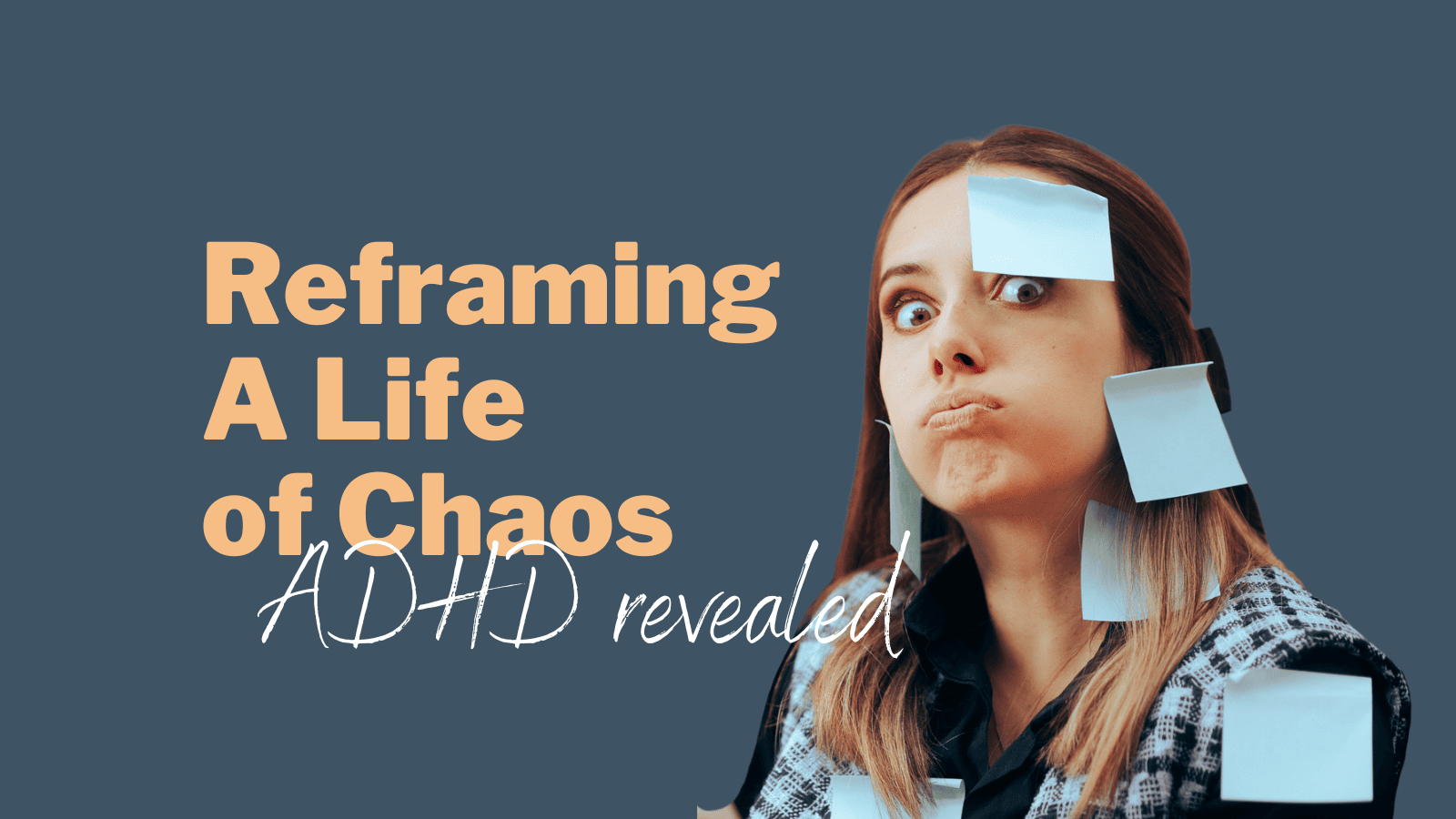
Held Together by Sticky Notes

Money Matters: Simple Budgeting Strategies for Adults with LD or ADHD
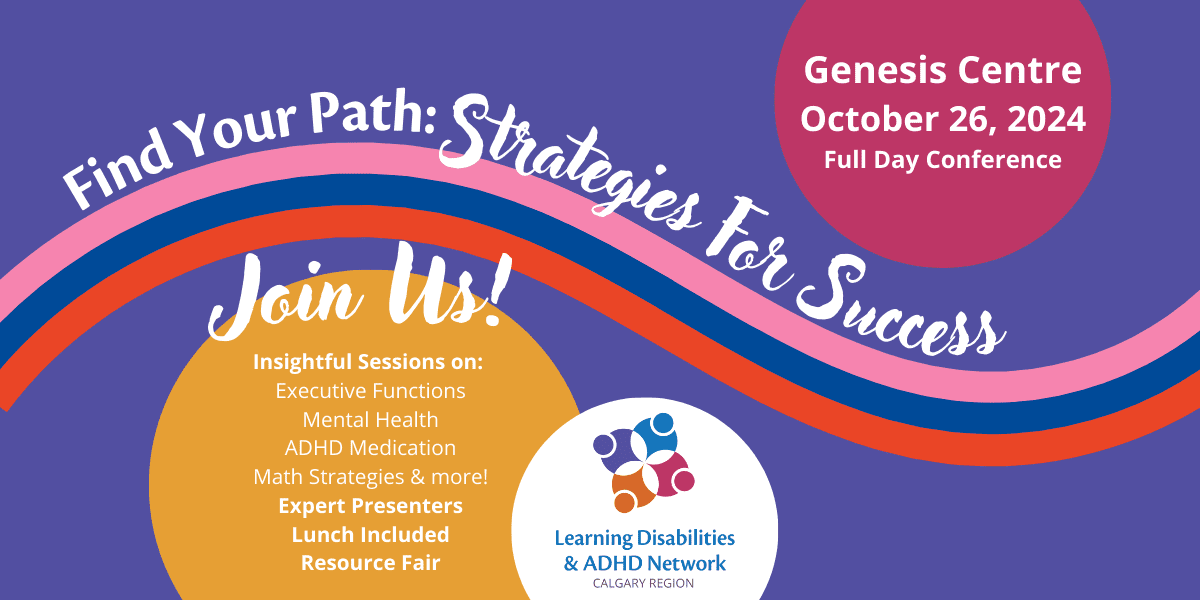
Find Your Path: Strategies for Success Conference


We’re New Here…What Do We Need to Know?
